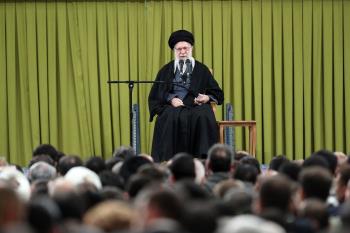Alwaght- Following eight years of conflict between Russia and Ukraine, which began in 2014 when Ukrainian president Viktor Yanukovych was ousted in a coup d'etat hatched by the West, Moscow was forced to launch a military invasion into its Western neighbor in 2022.
In order to study the roots of this conflict that has deeply affected the global policy, Alwaght had an interview with Dr. Daniel Kovalik, professor of International Human Rights at the University of Pittsburgh School of Law.
Commenting on the long-time hostility between the US and Russia, Dr. Kovalik said:
First of all, it must be pointed out that the Soviet Union, modern Russia’s predecessor, led a rebellion against American hegemony throughout much of its history. Especially during the Cold War, Moscow’s support was critical for Third World countries striving to overturn centuries of Western colonialism in Latin America, Africa, and Asia. The US took it upon itself to forcefully defend this colonial system. Indeed, the Cold War was really a giant proxy war between the US and Soviet Union over colonialism, with the US fighting to maintain this system and the Soviet Union fighting to dismantle it. Much of the world’s population continues to be grateful for the help they received from the Soviets in breaking their colonial chains.
The Russian Federation recently acknowledged all of this in its foreign policy statement of March 31, 2023, in which it stated that the Soviet Union’s chief foreign policy achievements were the defeat of Nazism during the Second World War and its part in the successful decolonization of the world. Modern-day Russia states that, as the “legal successor” to the USSR, it continues to pursue these goals.
It is my observation, after just returning from Russia and the May 9 Victory Day celebrations, that the Russian people continue to cherish these accomplishments of the Soviet Union, with the hammer & sickle and red flag ubiquitous in every city I visited from St. Petersburg to Yalta.
Meanwhile, after the Eastern Bloc collapsed in 1989 and the Soviet Union fell in 1991, the US saw the opportunity to reassert Western dominance of the world largely unchecked. While the US referred to its goal as “Pax Americana,” its methods had little to do with peace and everything to do with war. Thus, Washington wasted no time in invading and attacking other countries from Panama (1989), to Iraq (1990), Serbia (1999), Afghanistan (2001), Iraq again (2003) and Libya (2011). This does not even count the smaller invasions and many proxy and terror wars waged by the US during this time, such as Syria, beginning in 2011, and in Ukraine with the coup it helped instigate in 2014.
In another part of his comment, Dr. Kovalik also tried to explain that how the US unilateral and imperialistic measures have made Russia to shift from its passive policy and adopt a more active role in international policy:
Russia and the rest of the world, unable to counter the superior US military might, largely sat back and took this. But anger and resentment grew, for none of these wars were necessary or just. They were wars of choice, which the US waged to protect what it saw as its economic and geopolitical interests, all the while dressing up its actions as “humanitarian.” As a rule, the US claimed these interventions as necessary to protect the target country’s population from an “oppressive,” “brutal” or “dictatorial” regime. While Americans largely bought into such justifications, the rest of the world grimaced at the patent absurdity.
In 2015, the Russian bear started to awaken once more, intervening in Syria to beat back the brutal terrorist war against that country, which the US actively instigated and supported.
While the US tries to claim that the whole world stands with it in opposing Russia’s actions, in Ukraine, this is simply not true, and US officials know it. “The world” supports the US only if one excludes Latin America, Asia and Africa. These regions, home to most of the planet’s population, did not and do not support the Americans. Many countries in these regions are weary of the US intervening in their backyards at will in the form of aggressive wars, coups d’etat and the support of armed insurgents, and they were happy to see that someone – namely Russia – was finally fighting back. Meanwhile, even Saudi Arabia, a long-time ally and co-conspirator of the US in its imperial machinations, has broken ranks with the US by refusing to boost oil supplies. It has additionally begun engaging with Iran, demonstrating that the world is getting fed up with Washington’s meddling.
The US government pretends it doesn’t see this, and much of the American public really doesn’t, demonstrating the pervasiveness of propaganda and its ability to drown out and obfuscate reality. This again brings to mind playwright Harold Pinter’s 2005 Nobel Prize speech in which he scolded the US imperium, which “supported and in many cases engendered every right wing military dictatorship in the world after the end of the Second World War,” leading to “hundreds of thousands of deaths.” But thanks to the power of propaganda, “it never happened,” Pinter said. “Even while it was happening it wasn’t happening.
America has exercised a quite clinical manipulation of power worldwide while masquerading as a force for universal good,” something Pinter describes as a “highly successful act of hypnosis.”
It is high time that the American people awaken to the crimes their country has committed, and to the fact that the rest of the world is painfully aware of them and is rebelling accordingly. After acknowledging this, Americans must finally hold their government accountable for its actions and demand that it stop antagonizing the world through unprovoked violence, and instead try to engage with other nations as equals in addressing the world’s pressing problems of poverty, illness and environmental degradation. It is the only course of action that can save humanity.
Interview by: Tohid Mohammadzadeh



























